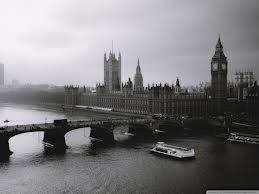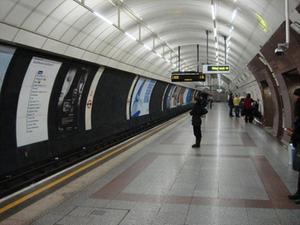_Eva_Sajovic.jpeg)
|
|
| photo: Eva Sajovic | |
Sarah Butler lives in Manchester, England. She runs a consultancy that develops literature and arts projects that explore and question our relationship to place. She has been writer-in-residence on the Central Line, the Greenwich Peninsula, and at Great Ormond Street Hospital, and has taught creative writing for the British Council in Kuala Lumpur. Ten Things I've Learnt About Love is her first novel; it will be published in more than a dozen languages worldwide.
Can you pinpoint your initial inspiration for Ten Things I've Learnt About Love?
I can pinpoint the moment that the idea for the novel came to me. I was on a residential writing course in Shropshire, England, attending a workshop with the brilliant novelist Maggie Gee, and suddenly Ten Things I've Learnt About Love appeared in my head--Alice, Daniel, their relationship, the novel's plot. I've never had an experience like that before. It felt as though the novel appeared fully formed and "all" I needed to do was turn up and write it. Looking back however, I can see that the novel is very much tied up with the end of a long-term relationship which involved a lot of heartbreak, and losing a home I had invested in both emotionally and financially. This happened just months before I started writing Ten Things I've Learnt About Love. At the time I didn't connect the two things and it probably wouldn't have been useful if I had but, in retrospect, the themes of loss, grief and home are so strong in the book they can't not be related!
There is a great deal of detail about London topography. What makes London the ideal setting for this story?
 London is such a big, sprawling, diverse city. It's the kind of place you can be anonymous in if you choose to be, and also a place you can find connections in. It's an ideal setting for the story because of its diversity, I think--by the fact that it contains so many different spaces, and different worlds/experiences within it. There are personal reasons why I set it in London, too. I didn't grow up in London, but moved there, reluctantly, to be with my ex-partner back in 2004. When we broke up, my immediate thought was that I would leave, but to my surprise I realized that I had made more roots than I thought I had; that I had been hooked, if you like, by this huge, busy, vibrant city. I lost my home (in bricks and mortar terms) but saw for the first time that I had a home in London. Writing Ten Things I've Learnt About Love, I wanted to explore how one might inhabit a city like London--how one might be at home there. The novel's also informed by the fact that I've done a lot of place-based writing residencies and projects in London and so have a very specific and intimate knowledge of a huge range of places. I also studied for a Masters degree in Urban Studies at University College London as I was writing the novel and so further developed my interest in urban living. London is a much-written-about city, and I wanted to find a different way to write it, one that looked at the smallness and the everydayness of a global city, that celebrated the marginal and the overlooked.
London is such a big, sprawling, diverse city. It's the kind of place you can be anonymous in if you choose to be, and also a place you can find connections in. It's an ideal setting for the story because of its diversity, I think--by the fact that it contains so many different spaces, and different worlds/experiences within it. There are personal reasons why I set it in London, too. I didn't grow up in London, but moved there, reluctantly, to be with my ex-partner back in 2004. When we broke up, my immediate thought was that I would leave, but to my surprise I realized that I had made more roots than I thought I had; that I had been hooked, if you like, by this huge, busy, vibrant city. I lost my home (in bricks and mortar terms) but saw for the first time that I had a home in London. Writing Ten Things I've Learnt About Love, I wanted to explore how one might inhabit a city like London--how one might be at home there. The novel's also informed by the fact that I've done a lot of place-based writing residencies and projects in London and so have a very specific and intimate knowledge of a huge range of places. I also studied for a Masters degree in Urban Studies at University College London as I was writing the novel and so further developed my interest in urban living. London is a much-written-about city, and I wanted to find a different way to write it, one that looked at the smallness and the everydayness of a global city, that celebrated the marginal and the overlooked.
Daniel, the homeless protagonist, lives in a richly detailed world. Did you research the experience of being homeless in London to depict his character?
I did, mainly by volunteering at homeless hostels in London. There's a great charity called Crisis who do a lot of work with homeless people across the UK. Every Christmas they open big centres across London for the Christmas week--I volunteered there for a couple of years too. I was conscious from the start though that I didn't want to write a novel "about" homelessness. And indeed I feel that Daniel is more "at home" than Alice is, despite her access to money and roof over her head.
What gave you the idea that Daniel should have synesthesia?
I met someone with synaesthesia when I was at University and was struck by the unique way she experienced the world. I also remember someone telling me about someone whose job was creating new colours (for paint, or dye--I can't really remember) and I've tried a couple of times to write short stories about people with a very particular relationship to colour. Those two ideas had been hanging around in the back of my mind for years, waiting for Daniel, it seems! I'm also a very visual person, and Daniel's synaesthesia allowed me to explore this in a slightly different way.
 Themes of home and escape, family ties and independence, may be the strongest in the novel. Do these themes have personal resonance for you?
Themes of home and escape, family ties and independence, may be the strongest in the novel. Do these themes have personal resonance for you?
The experience of losing the home that I had bought and refurbished with my ex-partner had a big impact on me, and I'm sure that experience is refracted to some degree in Ten Things I've Learnt About Love. I had been interested in these themes from way before that, though. In my first job working for the library service in Leicester I did a lot of work with asylum seekers, for instance, and was very drawn to the experience and creative work that comes out of exile. It's interesting--I grew up in a very stable, very loving family who still live in the house I was brought up in, and yet there's a part of me who's a wanderer like Alice, I think. I have a push-pull relationship with stability--craving it on the one hand and rejecting it on the other.
Much of the character development is in the "Ten Things..." lists throughout the novel. Were those fun to write?
They were--they allowed me to be playful and tell parts of the story in a different way. I have to admit that 10 things sometimes seemed like too many though--I'd often get to six or seven and feel a bit stuck! I enjoyed the cumulative nature of the lists, how these snippets of thoughts or ideas would build into something bigger than themselves. I have made a rod for my own back though--I must have been asked to write at least 10 lists of 10 things to do with the book since its been published [in the U.K.]!
You are a literature consultant, which sounds mysterious. What does a day in your profession look like?
It's not a title I'm entirely happy with, but it's a job that I make up as I go along and that's quite hard to describe! I've worked in literature development since I left university, which means working with readers and writers, and prospective readers and writers in a whole range of ways. I've organized literature festivals, run lots of projects in schools, museums, communities and public places. My work's evolved with me, and I've been self-employed since 2006, which has allowed me to create and take work that interests me. Usually this revolves around people, stories and place, and as I've become more confident with my own writing I've operated more often as a writer than a project manager or consultant. So I've been writer-in-residence on the underground in London, working with staff on the Central line to create new work; at Great Ormond Street Hospital working with patients and carers to create new stories for a new wing of the hospital; in a place called Bexley in East London, collecting oral histories of the area and creating text public art throughout the marshes by the Thames to celebrate the history and memories of the area. It's fantastic, challenging work that feeds into my own fiction as well as creating new collaborative writing with who ever I happen to be working with.
What's next for you?
More of the same really. I'm writing another novel, set in Manchester this time. It's still in the early stages and has quite a different feel than Ten Things I've Learnt About Love. I'm doing a writing residency in Preston with teenagers and older people with dementia, and doing some school projects, too. I'm also enjoying getting copies of Ten Things I've Learnt About Love in a raft of languages I can't speak a word of. Currently it's been bought in 14 countries--I've seen a copy in Danish and Norwegian so far, and I had a Swedish television crew come over to the U.K. to interview me the other week! It's an extraordinary thought that people who I couldn't have a conversation with will read and connect with Ten Things I've Learnt About Love. --Ilana Teitelbaum

